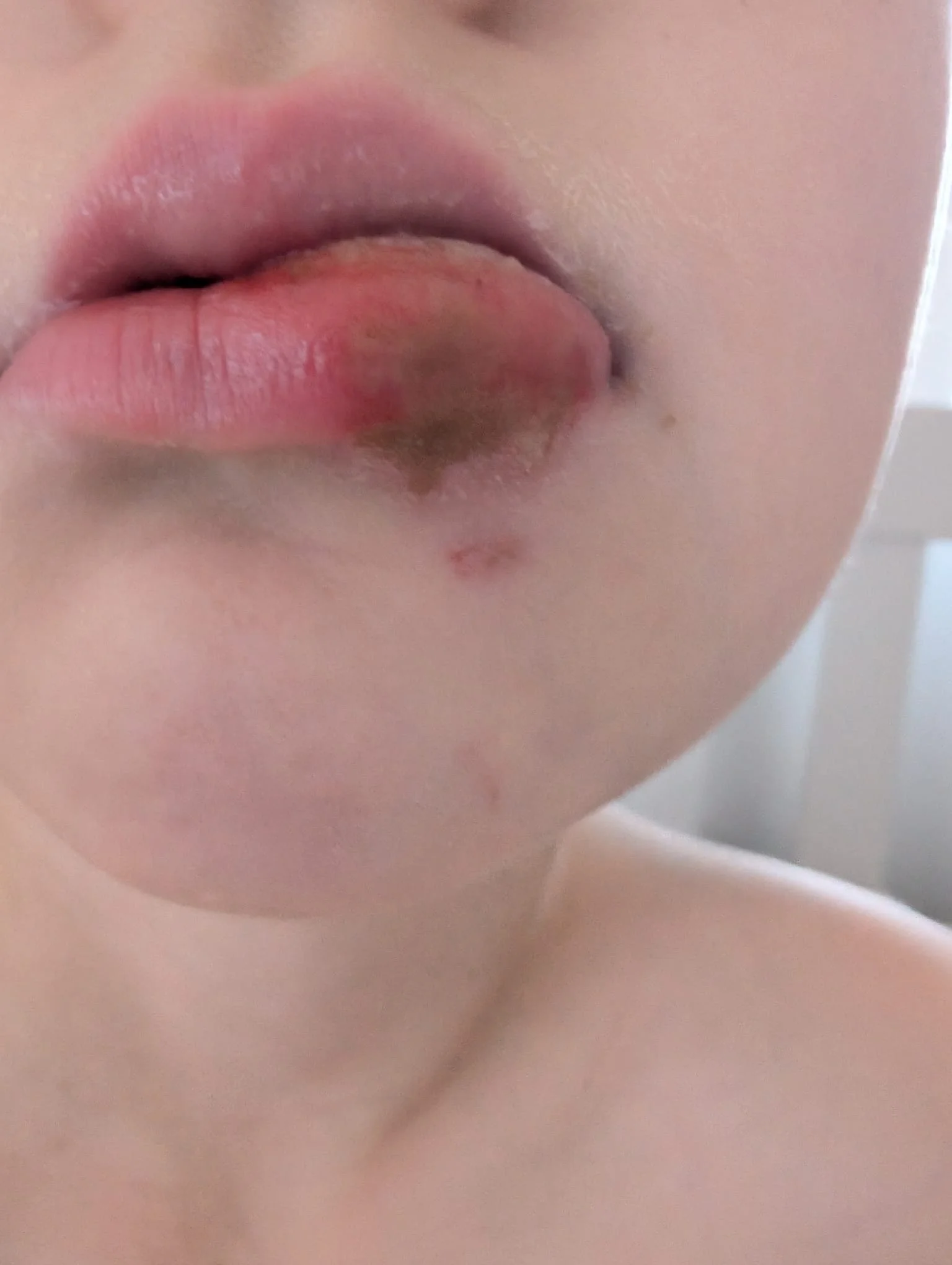Why is my child’s lip swollen after the dentist? It could be a self-inflicted injury caused by numbness!
If you’ve ever returned home from the dentist with your child only to notice a swollen or sore lip, you might feel concerned or confused. Many parents notice this issue later in the day after their child’s dental treatment with local numbing medicine. The good news? These injuries are common, preventable, and usually heal quickly. Let’s dive into what’s happening and how you can help.
Toddlers and younger kids are most at risk because they don’t always understand what’s happening.
Look out for swollen lips, redness, or sores later in the day!
What Is a Lip Injury from Numbing?
Lip injuries happen when kids accidentally bite, chew, or suck on their lips, cheeks, or tongue after a dental visit. Since dental anaesthetic blocks feeling, they don’t realise they’re causing harm until the numbness fades. By then, the affected area may look swollen, red, or even have a small sore.
Why Does This Happen?
Local anesthetic can feel strange to children. Younger kids, in particular, may find the numb sensation unusual or even entertaining. They might start biting or playing with their lips out of curiosity. Since they can’t feel pain, they may not stop until the numbness wears off and the injury is already done.
Signs to Look For
Puffiness or swelling in the lips or cheeks.
Red or irritated spots inside the mouth.
A small sore or ulcer where biting occurred.
How to Prevent Lip Injuries
Here are some easy ways to protect your child after dental treatment:
Explain What’s Happening: Tell your child their lips and cheeks are “sleeping” and need to be left alone. Gentle reminders can help them avoid biting or chewing.
Supervise Younger Kids: Keep a close eye on younger children until the numbness fades, which can take a couple of hours depending on the treatment.
Stick to Soft Foods: Offer soft, easy-to-eat foods like yogurt, pasta, or mashed potatoes. Avoid crunchy snacks, hot drinks, or anything that could irritate the area. Using a spoon instead of a straw can also help.
Keep Them Busy: Distract your child with activities like watching a movie, or reading. Keeping their hands and minds occupied reduces the chances of accidental biting.
What to Do If a Lip Injury Happens
Most lip injuries heal on their own within a few days. Here’s how you can help:
Keep the Area Clean: Gently rinse your child’s mouth with warm salt water to prevent infection.
Reduce Swelling: Apply a cold pack to the outside of the lip if it looks puffy.
Avoid Further Irritation: Stick with soft foods until the injury heals.
Ease Pain: Use over-the-counter pain relievers, like children’s paracetamol or ibuprofen, if needed. Always follow the recommended dosage.
When to Call the Dentist
Contact your paediatric dentist if:
Swelling gets worse instead of better.
Your child experiences severe pain.
There are signs of infection, such as pus or a fever.
Lip injuries after dental visits are a common issue, but they can be avoided with the right precautions. Educating children, keeping a close watch, and providing proper care will help prevent discomfort and ensure a quick recovery. If you have still have any concerns, we are always here to support you.


